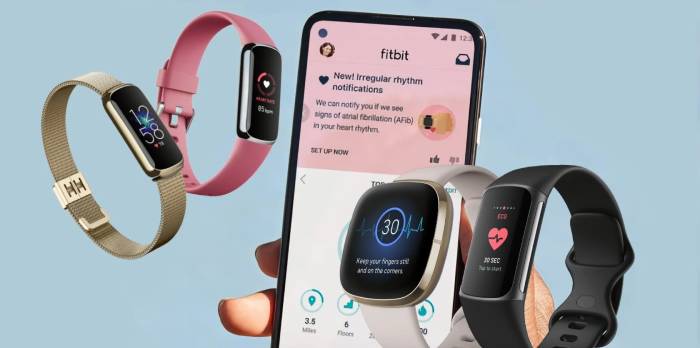Google said two weeks ago that it was seeking FDA approval for a new atrial fibrillation-detecting technology that it planned to push out to Fibit wearables. The FDA has authorised the PPG (photoplethysmography) algorithm, according to the company.
Detection of atrial fibrillation (AFib) has become an increasingly important component in health-related wearables. According to a blog post by Google, 33.5 million people worldwide suffer from an irregular heartbeat, which can increase the risk of stroke by up to 5 times. On a personal note, a friend’s spouse was admitted to the hospital due to the syndrome’s unexpected repercussions, and the doctor strongly recommended a consumer wearable device in addition to medication (specifically the Apple Watch, in this case). These devices have progressed from simple step counters to important medical tools in a short period of time.
The 2020 Heart Study, which tracked 450,000 people over the course of five months, helped the business gain validation for PPG. When compared to purpose-built ECG patches, it has a % effectiveness rate in AFib events. Fitbit’s description of the technology is as follows:
When your heart beats, tiny blood vessels throughout your body expand and contract based on changes in blood volume. Fitbit’s PPG optical heart-rate sensor can detect these volume changes right from your wrist. These measurements determine your heart rhythm, which the detection algorithm then analyzes for irregularities and potential signs of atrial fibrillation.
Compared to the Fitbit app’s current periodic tests, the new technology delivers a more always-on approach to AFib detection. When the gadget is monitored more consistently, it can check when the person is at rest or asleep, which is frequently the best period to detect irregular heart rhythms.
It will be available to consumers in the United States “soon” on heart-monitoring devices. The technology should be widely available across the company’s vast range of wearable price points now that it has been added.
- NCAA Women’s Gymnastics Semifinals 2025: When and Where to Watch - April 17, 2025
- World Cup 2026: American Airlines Signs Sponsorship Deal With FIFA - April 17, 2025
- National Exercise Day 2025: How a Daily Walk Can Boost Your Body & Mind - April 17, 2025



